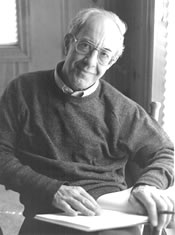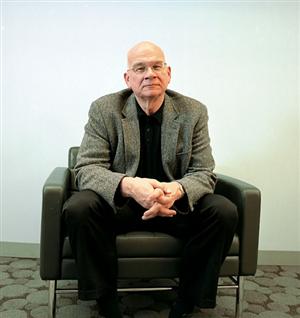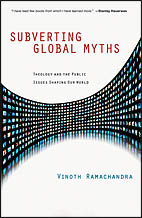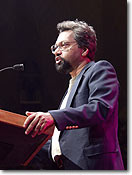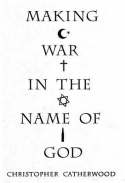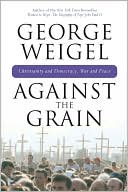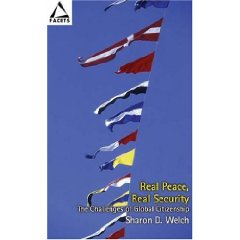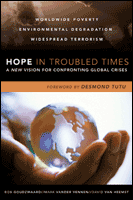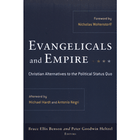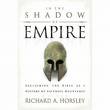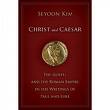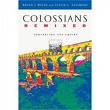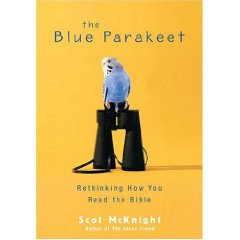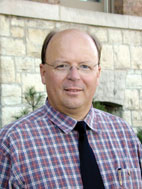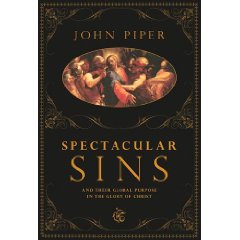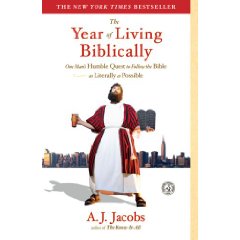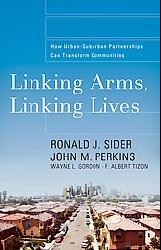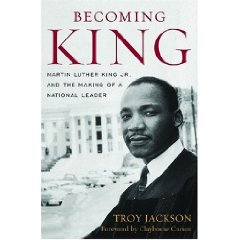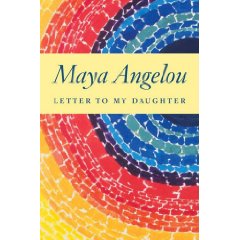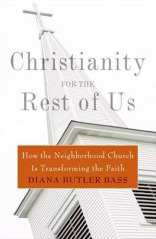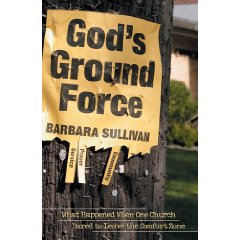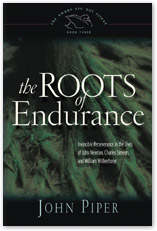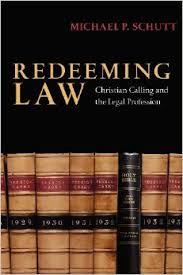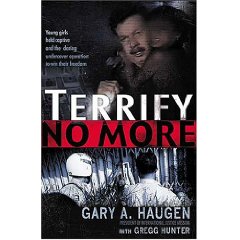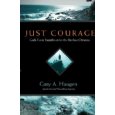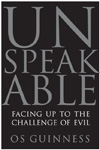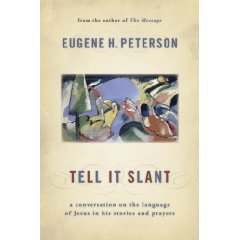Tonight I’d like to offer a bit of a tangent to last night’s breathy announcement about the brand new Timothy Keller book The Prodigal God: Recovering the Hearts of the Christian Faith (Dutton; $19.95.) I hope you saw that blog post, descibing the significance of this very important and lovely new book. One friend asked how it might compare to the classic 1992 book by the late Catholic priest and devotional writer, Henri Nouwen, Return of the Prodigal Son: A Story of Homecoming (Image; $16.00.) It is a line of thought I almost pursued in that post, but it seemed a bit much.
Still, I can’t shake the question. I am sure others have read Nouwen, and many have been touched by his work, including this notion of being God’s dearly beloved, perhaps gleaned from Brennan Manning’s borrowing the phrase from his friend Henri. I wonder what others think?
I suppose we might say a few things that might be helpful at least in terms of style and impressions. I hope you followed some of the links we offered about Keller; he is a very, very important figure and his books are important. And he is a writer we appreciate. More, as we hinted last night, we like his work, his vision for cultural renewal, the way Redeemer witness to a wholistic and sophisticated Kingdom vision. He is very different than Nouwen, though.
Not to oversimplify (there have been whole books written by him) Henri Nouwen was a gentle and kindly writer, a mystic, whose early stuff channeled Thomas Merton and a bit of late 60s angst for personal meaning and social revolution. Who of us who read The Wounded Healer or Out of Solitude (with its cool black and white photos) in the 70s will ever forget the way he captured the times, our deepest longings and confusions, with creative appropriation of mystical spirituality (before that phrase was used outside of monastic circles.) As he moved from the chaplency at Yale towards international stature—America wrote that he was comparable only to Lewis in impacting popular religious publishing—he maintained his personal touch, sharing deep thoughts of his inner journey with his loyal fans, Protestant, Catholic and non-affiliated seekers. He dared us to follow the real Jesus, described in ways that may have been one part monastic spirituality, one part counter-cultural politics (liberation theology, solidarity with the poor, faith-based nonviolence, feminism) with a splash of earnest depth psychology. He was always gracious, renowned for his authentic care for those around him and his struggle with his own fame. Book after book referred to his “journey” or his “cry” or the “movements towards love” or the “road to Daybreak.” He was a man in transition, on the move. He yearned for greater intimacy with others, experimented with various forms of intentional community, and saw the sacred eucharistic practices pointing to the realities of the unseen world: God is love, and we are to treat all others like God’s children. He often wrote about the need for mystics to be busy, and for activists to be rooted in the love known through solitude and silence.
Like Merton and other true Christian mystics, he knew God as Father, spoke of his devotion to Christ, and moved out of an animated discernment of the leading of the Spirit. His love for God lead to a humble attempt to serve the lost, make peace in the world, and speak truth to power. Near the end of his life he was living in an intentional community of the mentally disabled, the L’Arche community in Toronto (founded by Jean Vanier.) Henri traveled sometimes to fancy speaking engagements with his friend Adam, a developmentally disabled member of the L’Arche community and, without a hint of exploitation or drama, would invite Adam to share the stage, offering his remarks to the gathering as well. (For many, the book Adam [Orbis; $16.00] is one of his most beautiful.) He always kept a journal, wore his heart on his sleeve, loved and cried and thought hard about the nature of our broken Western civilization and how the simple foolishness of the gospel might be lived out as a counter-weight to the stuff that keeps us in bondage to “the house of fear” and from knowing we are loved.
Philip Roderick , who has a lovely little book called Beloved: Henri Nouwen in Conversation (Eerdmans; $20.00) that includes a CD recording of the interviews, introduces his subject by saying that Nouwen “was a delightful admixture of vulnerability and intention, of passionate intensity and colourful exuberance.” From what I can gather, that gets it about right.
Return of the Prodigal Son is his most beloved book and, I believe, his best seller. It is, for those that do not know, considered one of the great religious books of our time, and has been translated into many languages. It is a curious work, it is part personal memoir, sharing his heart, his struggles, loneliness, insecurity (and from what we know from posthumously published journals, tributes, and personal testimonials from those who knew him well, he was deeply wounded inside, insecure and sometimes depressed.) Return is also part Biblical exegesis, the most extended bit of Bible study he ever published. Making it special, though, is how he exegetes the text in light of the famous painting by Rembrandt, the painting that graces the cover of the book. There is quite a long story—-which I have heard directly from one of the principles—about Nouwen going to Saint Petersberg in Russia to sit before the painting (and a miracle which strangely allowed the immovable communist guard to allow him a special privilege of sitting for a day before it undisturbed.) As he did with a precious earlier book reading an icon, Nouwen “reads” the painting, and allows it to tell him the story.
What transpired in those long silent hours, the broken yet vibrant priest, the hurting man with such awareness of God’s calling him beloved, the bold peacemaker making peace with God’s world, this renowned writer sitting in stillness as the light faded over one of the most important (and rarely seen) paintings of Western history? Nouwen has been a mentor and dear brother to many. He has shared their agony of self-hatred, felt the inner sting of rejection. It is no wonder he, a Dutchman who loved the arts and reveled in the goodness of God’s world, yet who had this dark side, would so resonate with the brooding picture of the destitute prodigal received by the loving father. It was, for him, spiritual transforming. He died a few years later while on his way back to Russian to film a documentary in front of the renowned painting.
And so, I think we might say that the right-brained persona of Nouwen is quite different than the person of Dr. Keller—intellectual, driven, church-planter, Reformed theologian and no-nonsense apologist. Keller’s excellent new book, while briefer than Return of the Prodigal Son, has more overt theological substance. It draws on the facts of God’s grace in direct, doctrinally crisp and coherent ways. It is graciously written and very moving, yet it feels rather different than the Nouwen one. As we noted in the last post, Keller effectively turns the typical reading of the parable on its head and shows that God’s extravagant grace, especially shown to the up-right and responsible son, is the heart of the story. God is the one who has given all, is spent, is prodigal, his costly self-giving offered to save the lost. Keller is a culturally engaged, urbane and intellectual man of letters (he sites novels and films as easily as Puritan theologians) but at heart he is a Reformed Presbyterian pastor. He tells of the gospel of Christ as seen in the doctrine of the atonement. He brings into conversation with bohemians and the bourg
eois, the great goodness of the cross, the power of saving grace, the true experience of new life. Keller’s The Prodigal Son is not the least bit brutish or harsh, and it is certainly not dry, but is spoken with urgent pastoral authority, insisting that solid doctrinal understanding of the grace of God will lead to the experience of new life, new affections, new habits, new relationships and renewed cultural engagement. Getting this parable right will not only makes us feel loved–and for Nouwen, that was almost everything—but it will set us into the community of the reign of God, allowing us to live obedient and Godly lives of relevant discipleship.
Nouwen, in contrast to this teacherly instruction about the meaning of the Bible’s message of grace, written helpfully for seekers or the nominally Christian, sits before this painting in awe, bringing his own burning heart, his own needs and insights. There, he discovers—not unlike Keller— God’s initiative and good grace. In The Return of the Prodigal Son he writes, “I am beginning now to see how radically the character of my spiritual journey will change when I no longer think of God as hiding out and making it as difficult as possible for me to find him, but, instead, as the one who is looking for me while I am doing the hiding.” He writes as a contemporary Catholic mystic, an art critic, a memoirist, yet one who understands that all is grace. He has read the best scholarly literature (as we noted last night about Keller, Nouwen, too, has read the important work of Kenneth Bailey.) Yet, Nouwen’s insights are less formulated in terms of careful literary analysis of the text, let alone systematic Biblical doctrine, but in terms of his own experiences of the story, mediated by the Rembrant painting.
These two books are both remarkable tellings of the tale, both tender and vital, smart and solid. Many who are drawn to Nouwen’s contemplative style would do well to ponder the clarity with which pastor Keller teaches. Those who have been touched by Keller’s call to engage this important story of Jesus, this revelation of how grace has cost God (but is free for us) might do well to move next to the thoughtful spirituality of Father Henri. These truly are helpful complimentary volumes, with Keller (please notice) writing mostly about God, and Nouwen’s tender book first carried the subtitle of “A Meditation on Fathers, Brothers and Sons.” Now, it is subtitled “A Story of Homecoming.”
And all of us who care about the integrity of the tellings of these stories should be well rooted in the Biblical scholarship that unpacks and develops this classic parable. A few weeks ago we celebrated the amazingly rich and important work in Eugene Peterson’s new book, Tell It Slant: A Conversation on the Language of Jesus in His Stories and Prayers (Eerdmans; $24.95) which attends to the language of Jesus, especially in his parables. We cannot say enough about it, and significant others insist it is the book of the year!
In last night’s blog post about the new Keller book, I mentioned that he recommended Finding the Lost: Cultural Keys Luke 15 by Kenneth E. Bailey (Concordia; $18.99.) You should also know about The Cross and the Prodigal: Luke 15 Through the Eyes of Middle Eastern Peasants (IVP; $15.00.) A more recent Bailey book compares this marvelous story of Jesus with one of the most formative narratives of the Old Testament people of God, the story of Jacob. Jacob and the Prodigal: How Jesus Retold Israel’s Story (IVP; $18.00) finds dozens of connections in the two tales and is one of the most exciting books of Biblical scholarship I have ever read. Dr. Bailey, himself informed by years of living in peasant villages in the Middle East (and interfaith dialogue about Jesus in places such as the University of Cairo) understands the cultural influences that surround the writing of first century parables, and knows well the brilliance of Rabbi Jesus’ use of Hebrew Scripture. He truly is one of the world’s most important New Testament scholars because of this. You will be amazed—as both Dr. Keller and Father Nouwen were–by the brilliance of this unassuming former Middle Eastern missionary, Western Pennsylvanian, Ken Bailey. His newest release, by the way, is a collection of serious Biblical studies, rhetorical explorations of the best ways to plumb the depths of the gospels: Jesus Through Middle Eastern Eyes (IVP; $23.00) We highly, highly recommend it.
Lastly, did you know that Bailey wrote a screenplay based on this important story of the forgiving, gracious father, written with an eye to use it in Arabic evangelism and discipleship? He filmed in Egypt, hired Arabic actors and filmmakers to do the whole thing, in Arabic, of course; it comes with English subtitles. What an amazing, special, and rare way to study this classic story anew. We stock Finding the Lost in DVD and it sells for just $20.00.
Finally, a closing word from Keller, whose new book we celebrate this month:
Jesus does not divide the world into the moral “good guys” and the immoral “bad guys.” He shows us that everyone is dedicated to a project of self-salvation, to using God and others in order to get power and control for themselves. We are just going about it in different ways. Even though both sons are wrong, however, the father care for them and invites them both back into his love and feast.
This means that Jesus’s message, which is “the gospel,” is a completely different spirituality. The gospel of Jesus in not religion or irreligion, morality or immorality, moralism or relativism, conservatism or liberalism. Nor is it something halfway along a spectrum between two poles—it is something else altogether.
The gospel is distinct from the other two approaches: In its view, everyone is wrong, everyone is loved, and everyone is called to recognize this and change.
Timothy Keller
The Prodigal God: Rediscovering the Heart of the Christian Faith
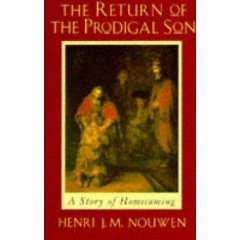 Well, after announcing the brand new Tim Keller book, The Prodigal God: Recovering the Heart of the Christian Faith, in our post last night (and the “blog special” sale on it) I’ve pondered a good question posted as a comment by a friend: how does this new book by a thoughtful and urbane Presbyterian theologian/pastor compare with the lovely classic by Catholic mystic, activist and devotional writer, Henri Nouwen, Return of the Prodigal Son: A Story of Homecoming (Image; $16.00.)? Good question!
Well, after announcing the brand new Tim Keller book, The Prodigal God: Recovering the Heart of the Christian Faith, in our post last night (and the “blog special” sale on it) I’ve pondered a good question posted as a comment by a friend: how does this new book by a thoughtful and urbane Presbyterian theologian/pastor compare with the lovely classic by Catholic mystic, activist and devotional writer, Henri Nouwen, Return of the Prodigal Son: A Story of Homecoming (Image; $16.00.)? Good question! 